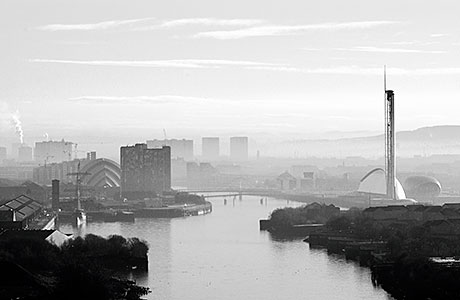Five-year push to clean up Clyde

SCOTTISH Water is to spend £250m on the biggest overhaul of Greater Glasgow area’s waste water network for more than a century. And there will be more to come.
The five-year programme of work will continue to improve river water quality and the natural environment of the River Clyde. It will also encourage further development, ease sewer flooding and tackle the effects of increased rainfall and climate change.
Further investment is being identified that could bring investment up to £0.5 billion.
Scottish Water’s investment follows years of collaboration and studies by the Metropolitan Glasgow Strategic Drainage Partnership (MGSDP) which includes Scottish Water, the Scottish Environment Protection Agency and Glasgow City Council.
Speaking at the programme launch Geoff Aitkenhead, the water company’s asset management director, said the investment will transform the waste water infrastructure. “By working with our MGSDP partners, we have been able to find integrated drainage solutions for the future which will provide knowledge and experience that can be used across the rest of Scotland, with the Glasgow area being seen as a template of good practice.”
But he warned the latest works will be only one part of the response to the pressures on the drainage network to cope with the volume of waste water and surface water run-off.
David Sigsworth, chairman of SEPA, commented: “This is an important step forward in improving the natural environment of the River Clyde and alleviating sewer flooding in Glasgow. The Wastewater Strategy aims to enhance water quality in around 43 miles of the Clyde and its tributaries, and help protect and improve biodiversity in the area.”
The investment includes:
• Upgrades to around 200 combined sewer overflows or outfall pipes – safety valves used to control waste water during heavy rainfall – on the River Clyde and tributaries such as the River Kelvin and White Cart Water at a cost of around £105m
• Waste water improvements in the south west of Glasgow to remove excess surface water from areas with known ‘pinch points’ which cause restrictions in the system at a cost of around £100m
• A number of projects to tackle flooding in parts of the city at a cost of around £45m








